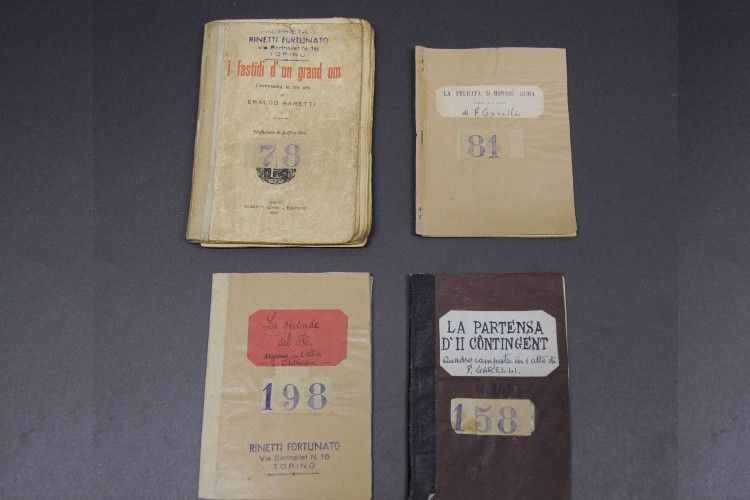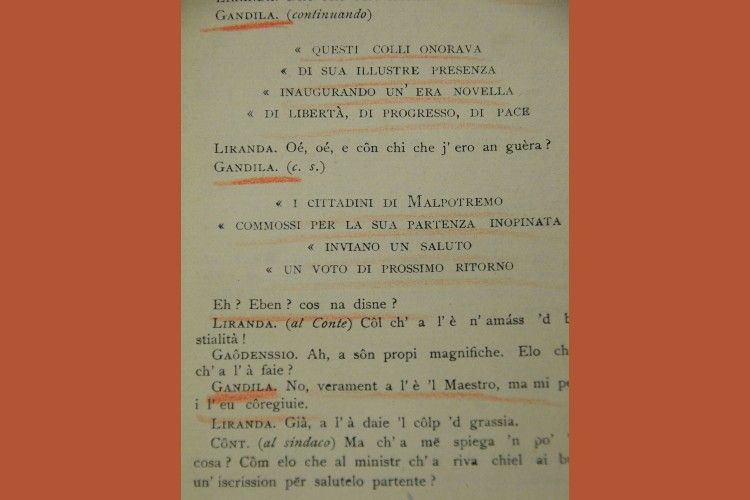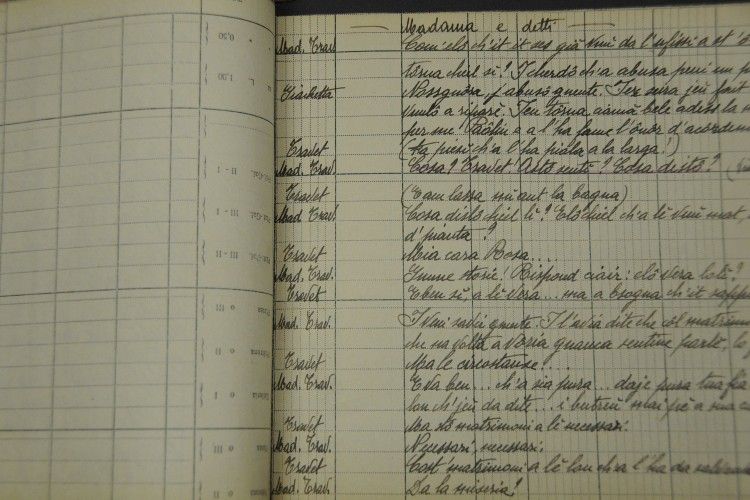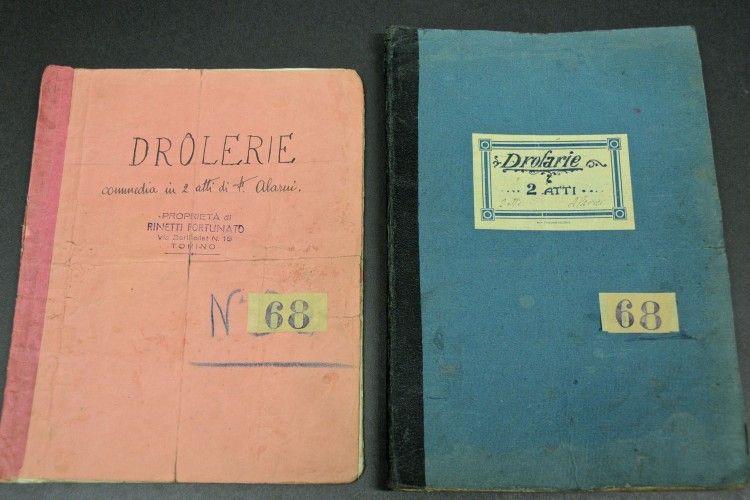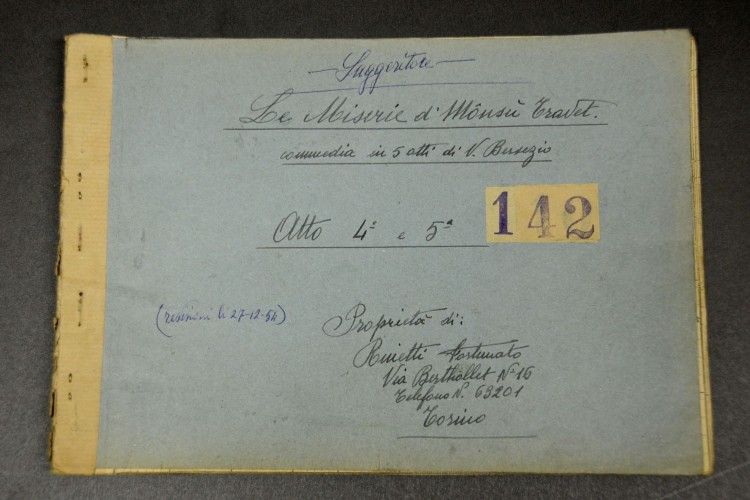Versione italiana English version Version française Versión en español
The Library has a collection of 232 units of theatrical scripts, partly manuscript, partly typewritten, which were purchased in March 1966 by Fortunato Rivetti, who had collected and ordered them in numerical series.
The stamp owned by Rivetti is superimposed in many cases to those of some theatre companies, in particular to that of Romolo Solari, chief comedian of the Compagnia Piemontese, to whom they seem to belong, at least in part, originally.
Other indications of origin can also be found, such as the Compagnia Teatro Comico Piemontese Giovanni Biondi or the Compagnia di varietà directed by Bogino Vittorio.
We are therefore faced with a curious testimony of how these very important texts passed from Compagnia in Compagnia, distributed to the actors, rewritten, bound to the best with cardboard covers intended to wear quickly. Their state of preservation reveals continuous use, for generations. They are texts transcribed or composed between the last decades of the Nineteenth century and the 1930s, and exclusively belonging to the Piedmontese dialect comedy theater.
The most recurring authors are Vittorio Actis, Vittorio Bersezio, Enrico Gemelli, Alfredo Mariani, Carlo Alfredo Occhetti, Luigi Pietracqua, Oreste Poggio, Mario Valabrega, Giovanni Zoppis. Their comedies were evidently part of the usual repertoire of these Companies and not all the texts are now known and represented.
They testify of an art only apparently "timeless", which is perhaps limiting to consider isolated and confined outside of history, in the corner occupied by an audience anchored to a static tradition and with no escape.
They are texts that should be read, on the contrary, as a mirror of a world, contingent and historicizable, that created them and fed on them. Another easy axiom, that what is created for the average popular taste is not authentically popular, can perhaps be discussed today, precisely through these theatrical expressions, which, despite all having an author, reflect in a clear way contexts of expressive authenticity in which the author himself had descended, culturally.
Behind these easy texts, schematic or complex in the plot and in the number of the protagonists, there are numerous problems, all the more evident today that that world revealed by dialectal theater has moved away from the ordinary perception of the public, even the most "conservative".
- Catalog by author (pdf 188 KB)
Extract from the Theatrical Scripts Collection on:

